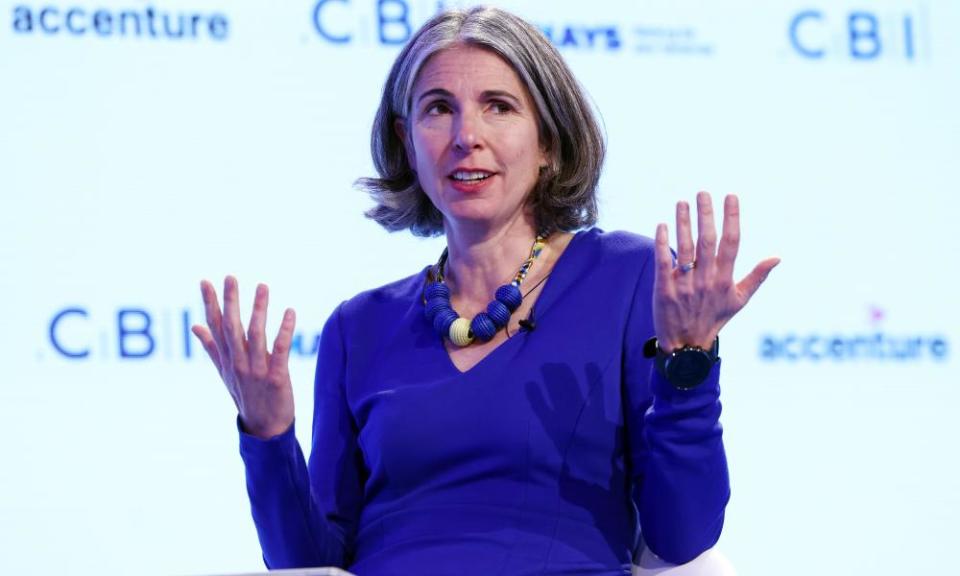Making CBI staff feel safe to speak up should be more central to its message

The voice of business has spoken. The messaging, however, is mixed. After a period of turmoil and soul searching, during which most of its work was suspended, the Confederation of British Industry has outlined plans for an overhaul of its culture and governance. Its members will be asked to give their verdict in a confidence vote, for which polling has already opened. We will learn the results next week, soon after a gathering at the CBI’s Cannon Street offices in London.
Its director general, Rain Newton-Smith, brought in to steady the ship, made her pitch in a prospectus published on Wednesday.
More than 50 leading companies, from John Lewis to Aviva, have suspended or cancelled their membership. The government, and the Labour party, have paused all official contact until the situation is resolved. Has Newton-Smith done enough to win them back?
Related: CBI to search for new president as it plans to overhaul working culture
The allegations could not be more serious. They concern claims of sexual misconduct, including rape, by male employees. The women who have complained say their concerns were not properly dealt with. The CBI’s president, Brian McBride, conceded in April in a letter to members that his organisation had failed to filter out “culturally toxic people” during its hiring process, and that its managers had tried to find resolution in sexual harassment cases “when we should have removed offenders from our business”. On Wednesday, he said the organisation felt “chastened”.
In some quarters, the tone has been less apologetic. Carolyn Fairbairn, director general from 2015 until 2020 and the first woman to lead the CBI, recently spoke up in the Sunday Times for what she described as a “really good culture”, saying she did not accept a connection between the way the organisation was run and some of the alleged misconduct. She hit out at the board for drawing “a direct link from a toxic culture to assaults on women”, saying it was “fundamentally unfounded”.
Newton-Smith seems to have positioned herself somewhere between the two.
Her key statement on Wednesday was all about Principia, an external consultancy brought in to review the working environment at the CBI. We are told it has concluded blanket descriptions portraying the group’s culture as toxic were not accurate.
Newton-Smith admits there is work to do.
With that in mind, another consultant has been hired. The board adviser Ffion Hague, whose past clients have included the mining giant Rio Tinto and retailer Marks & Spencer, will review governance.
Convincing members to return is about more than external evaluations. It is about showing the CBI has changed. Staff must believe the right procedures will be followed if they raise a complaint in future. The CBI leadership has taken some important steps. Employees suspended after an investigation by a law firm have now left, and those departures send an important signal.
However, speaking up is a huge career risk for more junior staff. Unless they feel safe in calling out misconduct, they won’t do it. And if they don’t do it, the organisation is unlikely to change.
When pressed on this point, Newton-Smith said she was laying the foundations for a “strong speak-up environment”. But that was not her central message. It probably should have been.

 Yahoo Finance
Yahoo Finance 